-
EXECUTIVE SUMMARY
-
MARKET INTRODUCTION
-
DEFINITION
-
SCOPE OF THE STUDY
-
RESEARCH OBJECTIVE
-
MARKET STRUCTURE
-
RESEARCH METHODOLOGY
-
OVERVIEW
-
DATA FLOW
- DATA MINING PROCESS
-
PURCHASED DATABASE:
-
SECONDARY SOURCES:
- SECONDARY RESEARCH DATA FLOW:
-
PRIMARY RESEARCH:
- PRIMARY RESEARCH DATA FLOW:
- PRIMARY RESEARCH: NUMBER OF INTERVIEWS CONDUCTED
- PRIMARY RESEARCH: REGIONAL COVERAGE
-
APPROACHES FOR MARKET SIZE ESTIMATION:
- REVENUE ANALYSIS APPROACH
-
DATA FORECASTING
- DATA FORECASTING TYPE
-
DATA MODELING
- MICROECONOMIC FACTOR ANALYSIS:
- DATA MODELING:
-
TEAMS AND ANALYST CONTRIBUTION
-
MARKET DYNAMICS
-
INTRODUCTION
-
DRIVERS
- RISING PREVALENCE OF SLEEP DISORDERS
- INCREASING AWARENESS AND HEALTH CONSCIOUSNESS
- INCREASING LAUNCH AND APPROVAL OF SERVICES AND PRODUCTS ASSOCIATED WITH SLEEP TESTING DEVICE
-
RESTRAINTS
- HIGH COST OF SLEEP TESTING DEVICE
- VOLUNTARY PRODUCT RECALL BY MARKET PLAYERS
-
OPPORTUNITY
- GROWING GERIATRIC POPULATION
- INCREASING FUNDING AND INVESTMENT ASSOCIATED WITH SLEEP DEVICES AND SERVICES
-
MARKET FACTOR ANALYSIS
-
PORTER'S FIVE FORCES MODEL
- THREAT OF NEW ENTRANTS
- BARGAINING POWER OF SUPPLIERS
- THREAT OF SUBSTITUTES
- BARGAINING POWER OF BUYERS
- INTENSITY OF RIVALRY
-
IMPACT OF COVID-19 ON GLOBAL SLEEP TESTING MARKET
-
OVERVIEW OF ACADEMIC RESEARCH
-
LIST OF REGULATIONS FOR AI IN THE CLINICAL SLEEP DIAGNOSIS INDUSTRY ACROSS ALL COUNTRIES
-
SLEEP MEDICINE EXPERTISE LICENSING AND CERTIFICATION REQUIREMENTS
-
MAINSTREAM PRODUCTS AND THEIR RESPECTIVE BRANDS IN EUROPE AND NORTH AMERICA
-
LIST TABLETOP OXIMETERS
-
MARKET SIZE FOR WATCHPAT
-
Sleep Testing Services Market, BY PRODUCT AND SERVICES
-
OVERVIEW
-
PRODUCT
- POLYSOMNOGRAPHY DEVICES
- ACTIGRAPHY SYSTEMS
- OXIMETERS
- RESPIRATORY POLYGRAPHS
- OTHERS
-
SERVICES
- IN-LAB POLYSOMNOGRAPHY (PSG)
- HOME SLEEP APNEA TESTING (HSAT)
- SLEEP STUDY CONSULTATION SERVICES
-
Sleep Testing Services Market, BY INDICATION
-
OVERVIEW
-
SLEEP APNEA
-
INSOMNIA
-
NARCOLEPSY
-
PARASOMNIA
-
OTHERS
-
Sleep Testing Services Market, BY AGE GROUP
-
OVERVIEW
-
CHILDREN (1 TO 17)
-
ADULTS (18 TO 60)
-
GERIATRIC (60 ABOVE)
-
Sleep Testing Services Market, BY END USER
-
OVERVIEW
-
SLEEP TESTING CENTERS
-
HOSPITALS
-
HOME CARE SETTINGS
-
OTHERS
-
Sleep Testing Services Market, BY REGION
-
NORTH AMERICA
- US
- CANADA
-
EUROPE
- GERMANY
- FRANCE
- UK
- SPAIN
- ITALY
- RUSSIA
- REST OF EUROPE
-
ASIA-PACIFIC
- CHINA
- INDIA
- JAPAN
- SOUTH KOREA
- MALAYSIA
- THAILAND
- INDONESIA
- REST OF ASIA-PACIFIC
-
SOUTH AMERICA
- BRAZIL
- MEXICO
- ARGENTINA
- REST OF SOUTH AMERICA
-
MIDDLE EAST AND AFRICA
- GCC COUNTRIES
- SOUTH AFRICA
- REST OF MIDDLE EAST AND AFRICA
-
COMPETITIVE LANDSCAPE
-
INTRODUCTION
-
MARKET SHARE ANALYSIS, 2023
-
COMPETITOR DASHBOARD
-
PUBLIC PLAYERS STOCK SUMMARY
-
COMPARATIVE ANALYSIS: KEY PLAYERS FINANCIAL
-
KEY DEVELOPMENTS & GROWTH STRATEGIES
- PRODUCT APPROVAL
- PARTNERSHIP
- ACQUISITION
-
COMPANY PROFILES
-
KONINKLIJKE PHILIPS N.V.
- COMPANY OVERVIEW
- FINANCIAL OVERVIEW
- PRODUCTS OFFERED
- KEY DEVELOPMENTS
- SWOT ANALYSIS
- KEY STRATEGIES
-
RESMED
- COMPANY OVERVIEW
- FINANCIAL OVERVIEW
- PRODUCTS OFFERED
- KEY DEVELOPMENTS
- SWOT ANALYSIS
- KEY STRATEGIES
-
ZOLL MEDICAL CORPORATION
- COMPANY OVERVIEW
- FINANCIAL OVERVIEW
- PRODUCTS OFFERED
- KEY DEVELOPMENTS
- SWOT ANALYSIS
- KEY STRATEGIES
-
SLEEPMED SOLUTIONS
- COMPANY OVERVIEW
- FINANCIAL OVERVIEW
- PRODUCTS OFFERED
- KEY DEVELOPMENTS
- KEY STRATEGIES
-
MIDWEST SLEEP DIAGNOSTICS, INC.
- COMPANY OVERVIEW
- FINANCIAL OVERVIEW
- PRODUCTS OFFERED
- KEY DEVELOPMENTS
- KEY STRATEGIES
-
CADWELL INDUSTRIES INC.
- COMPANY OVERVIEW
- FINANCIAL OVERVIEW
- PRODUCTS OFFERED
- KEY DEVELOPMENTS
- SWOT ANALYSIS
- KEY STRATEGIES
-
COMPUMEDICS LIMITED
- COMPANY OVERVIEW
- FINANCIAL OVERVIEW
- PRODUCTS OFFERED
- KEY DEVELOPMENTS
- SWOT ANALYSIS
- KEY STRATEGIES
-
VIRTUOX INC.
- COMPANY OVERVIEW
- FINANCIAL OVERVIEW
- SERVICES OFFERED
- KEY DEVELOPMENTS
- KEY STRATEGIES
-
ENTRUSTED MEDICAL DEVICES
- COMPANY OVERVIEW
- FINANCIAL OVERVIEW
- PRODUCTS/SERVICES OFFERED
- KEY DEVELOPMENTS
- KEY STRATEGIES
-
WESPER
- COMPANY OVERVIEW
- FINANCIAL OVERVIEW
- PRODUCTS/SERVICES OFFERED
- KEY DEVELOPMENTS
- KEY STRATEGIES
-
DATA CITATIONS
-
-
LIST OF TABLES
-
QFD MODELING FOR MARKET SHARE ASSESSMENT
-
SLEEP MEDICINE EXPERTISE LICENSING AND CERTIFICATION REQUIREMENTS
-
MAINSTREAM PRODUCTS AND THEIR RESPECTIVE BRANDS IN EUROPE AND NORTH AMERICA
-
Sleep Testing Services Market, BY PRODUCT AND SERVICES, 2019–2035 (USD BILLION)
-
GLOBAL SLEEP TESTING MARKET, Sleep Testing Services Market, BY REGION, 2019–2035 (USD BILLION)
-
GLOBAL SLEEP TESTING MARKET, Sleep Testing Services Market, BY TYPE, 2019–2035 (USD BILLION)
-
GLOBAL SLEEP TESTING MARKET, Sleep Testing Services Market, BY REGION, 2019–2035 (USD BILLION)
-
GLOBAL SLEEP TESTING MARKET, Sleep Testing Services Market, BY TYPE, 2019–2035 (USD BILLION)
-
GLOBAL SLEEP TESTING MARKET, Sleep Testing Services Market, BY TYPE, 2019–2035 (USD BILLION)
-
GLOBAL SLEEP TESTING MARKET, Sleep Testing Services Market, BY TYPE, 2019–2035 (USD BILLION)
-
GLOBAL SLEEP TESTING MARKET, Sleep Testing Services Market, BY REGION, 2019–2035 (USD BILLION)
-
GLOBAL SLEEP TESTING MARKET, Sleep Testing Services Market, BY REGION, 2019–2035 (USD BILLION)
-
GLOBAL SLEEP TESTING MARKET, Sleep Testing Services Market, BY TYPE, 2019–2035 (USD BILLION)
-
GLOBAL SLEEP TESTING MARKET, Sleep Testing Services Market, BY REGION, 2019–2035 (USD BILLION)
-
GLOBAL SLEEP TESTING MARKET, Sleep Testing Services Market, BY REGION, 2019–2035 (USD BILLION)
-
GLOBAL SLEEP TESTING MARKET, Sleep Testing Services Market, BY REGION, 2019–2035 (USD BILLION)
-
GLOBAL SLEEP TESTING MARKET, Sleep Testing Services Market, BY REGION, 2019–2035 (USD BILLION)
-
GLOBAL SLEEP TESTING MARKET, Sleep Testing Services Market, BY REGION, 2019–2035 (USD BILLION)
-
GLOBAL SLEEP TESTING MARKET, Sleep Testing Services Market, BY REGION, 2019–2035 (USD BILLION)
-
GLOBAL SLEEP TESTING MARKET, Sleep Testing Services Market, BY REGION, 2019–2035 (USD BILLION)
-
GLOBAL SLEEP TESTING MARKET, Sleep Testing Services Market, BY TYPE, 2019–2035 (USD BILLION)
-
GLOBAL SLEEP TESTING MARKET, FOR IN-LAB POLYSOMNOGRAPHY (PSG), BY REGION, 2019–2035 (USD BILLION)
-
GLOBAL SLEEP TESTING MARKET, FOR HOME SLEEP APNEA TESTING (HSAT), BY REGION, 2019–2035 (USD BILLION)
-
GLOBAL SLEEP TESTING MARKET, Sleep Testing Services Market, BY REGION, 2019–2035 (USD BILLION)
-
Sleep Testing Services Market, BY INDICATION, 2019–2035 (USD BILLION)
-
GLOBAL SLEEP TESTING MARKET, Sleep Testing Services Market, BY REGION, 2019–2035 (USD BILLION)
-
GLOBAL SLEEP TESTING MARKET, Sleep Testing Services Market, BY REGION, 2019–2035 (USD BILLION)
-
GLOBAL SLEEP TESTING MARKET, Sleep Testing Services Market, BY REGION, 2019–2035 (USD BILLION)
-
GLOBAL SLEEP TESTING MARKET, Sleep Testing Services Market, BY REGION, 2019–2035 (USD BILLION)
-
GLOBAL SLEEP TESTING MARKET, Sleep Testing Services Market, BY REGION, 2019–2035 (USD BILLION)
-
Sleep Testing Services Market, BY AGE GROUP, 2019–2035 (USD BILLION)
-
GLOBAL SLEEP TESTING MARKET, Sleep Testing Services Market, BY REGION, 2019–2035 (USD BILLION)
-
GLOBAL SLEEP TESTING MARKET, Sleep Testing Services Market, BY REGION, 2019–2035 (USD BILLION)
-
GLOBAL SLEEP TESTING MARKET, Sleep Testing Services Market, BY REGION, 2019–2035 (USD BILLION)
-
Sleep Testing Services Market, BY END USER, 2019–2035 (USD BILLION)
-
GLOBAL SLEEP TESTING MARKET, Sleep Testing Services Market, BY REGION, 2019–2035 (USD BILLION)
-
GLOBAL SLEEP TESTING MARKET, Sleep Testing Services Market, BY REGION, 2019–2035 (USD BILLION)
-
GLOBAL SLEEP TESTING MARKET, Sleep Testing Services Market, BY REGION, 2019–2035 (USD BILLION)
-
GLOBAL SLEEP TESTING MARKET, Sleep Testing Services Market, BY REGION, 2019–2035 (USD BILLION)
-
Sleep Testing Services Market, BY REGION, 2019–2035 (USD BILLION)
-
Sleep Testing Services Market, BY COUNTRY, 2019–2035 (USD BILLION)
-
Sleep Testing Services Market, BY PRODUCT AND SERVICES, 2019–2035 (USD BILLION)
-
NORTH AMERICA SLEEP TESTING MARKET, Sleep Testing Services Market, BY TYPE, 2019–2035 (USD BILLION)
-
NORTH AMERICA SLEEP TESTING MARKET, Sleep Testing Services Market, BY TYPE, 2019–2035 (USD BILLION)
-
NORTH AMERICA SLEEP TESTING MARKET, Sleep Testing Services Market, BY TYPE, 2019–2035 (USD BILLION)
-
NORTH AMERICA SLEEP TESTING MARKET, Sleep Testing Services Market, BY TYPE, 2019–2035 (USD BILLION)
-
Sleep Testing Services Market, BY INDICATION, 2019–2035 (USD BILLION)
-
Sleep Testing Services Market, BY AGE GROUP, 2019–2035 (USD BILLION)
-
Sleep Testing Services Market, BY END USER, 2019–2035 (USD BILLION)
-
US: Sleep Testing Services Market, BY PRODUCT AND SERVICES, 2019–2035 (USD BILLION)
-
US: SLEEP TESTING MARKET, Sleep Testing Services Market, BY TYPE, 2019–2035 (USD BILLION)
-
US: SLEEP TESTING MARKET, Sleep Testing Services Market, BY TYPE, 2019–2035 (USD BILLION)
-
US: SLEEP TESTING MARKET, Sleep Testing Services Market, BY TYPE, 2019–2035 (USD BILLION)
-
US: SLEEP TESTING MARKET, Sleep Testing Services Market, BY TYPE, 2019–2035 (USD BILLION)
-
US: Sleep Testing Services Market, BY INDICATION, 2019–2035 (USD BILLION)
-
US: Sleep Testing Services Market, BY AGE GROUP, 2019–2035 (USD BILLION)
-
US: Sleep Testing Services Market, BY END USER, 2019–2035 (USD BILLION)
-
CANADA: Sleep Testing Services Market, BY PRODUCT AND SERVICES, 2019–2035 (USD BILLION)
-
CANADA: SLEEP TESTING MARKET, Sleep Testing Services Market, BY TYPE, 2019–2035 (USD BILLION)
-
CANADA: SLEEP TESTING MARKET, Sleep Testing Services Market, BY TYPE, 2019–2035 (USD BILLION)
-
CANADA: SLEEP TESTING MARKET, Sleep Testing Services Market, BY TYPE, 2019–2035 (USD BILLION)
-
CANADA: SLEEP TESTING MARKET, Sleep Testing Services Market, BY TYPE, 2019–2035 (USD BILLION)
-
CANADA: Sleep Testing Services Market, BY INDICATION, 2019–2035 (USD BILLION)
-
CANADA: Sleep Testing Services Market, BY AGE GROUP, 2019–2035 (USD BILLION)
-
CANADA: Sleep Testing Services Market, BY END USER, 2019–2035 (USD BILLION)
-
Sleep Testing Services Market, BY COUNTRY, 2019–2035 (USD BILLION)
-
Sleep Testing Services Market, BY PRODUCT AND SERVICES, 2019–2035 (USD BILLION)
-
EUROPE SLEEP TESTING MARKET, Sleep Testing Services Market, BY TYPE, 2019–2035 (USD BILLION)
-
EUROPE SLEEP TESTING MARKET, Sleep Testing Services Market, BY TYPE, 2019–2035 (USD BILLION)
-
EUROPE SLEEP TESTING MARKET, Sleep Testing Services Market, BY TYPE, 2019–2035 (USD BILLION)
-
EUROPE SLEEP TESTING MARKET, Sleep Testing Services Market, BY TYPE, 2019–2035 (USD BILLION)
-
Sleep Testing Services Market, BY INDICATION, 2019–2035 (USD BILLION)
-
Sleep Testing Services Market, BY AGE GROUP, 2019–2035 (USD BILLION)
-
Sleep Testing Services Market, BY END USER, 2019–2035 (USD BILLION)
-
GERMANY: Sleep Testing Services Market, BY PRODUCT AND SERVICES, 2019–2035 (USD BILLION)
-
GERMANY: SLEEP TESTING MARKET, Sleep Testing Services Market, BY TYPE, 2019–2035 (USD BILLION)
-
GERMANY: SLEEP TESTING MARKET, Sleep Testing Services Market, BY TYPE, 2019–2035 (USD BILLION)
-
GERMANY: SLEEP TESTING MARKET, Sleep Testing Services Market, BY TYPE, 2019–2035 (USD BILLION)
-
GERMANY: SLEEP TESTING MARKET, Sleep Testing Services Market, BY TYPE, 2019–2035 (USD BILLION)
-
GERMANY: Sleep Testing Services Market, BY INDICATION, 2019–2035 (USD BILLION)
-
GERMANY: Sleep Testing Services Market, BY AGE GROUP, 2019–2035 (USD BILLION)
-
GERMANY: Sleep Testing Services Market, BY END USER, 2019–2035 (USD BILLION)
-
FRANCE: Sleep Testing Services Market, BY PRODUCT AND SERVICES, 2019–2035 (USD BILLION)
-
FRANCE: SLEEP TESTING MARKET, Sleep Testing Services Market, BY TYPE, 2019–2035 (USD BILLION)
-
FRANCE: SLEEP TESTING MARKET, Sleep Testing Services Market, BY TYPE, 2019–2035 (USD BILLION)
-
FRANCE: SLEEP TESTING MARKET, Sleep Testing Services Market, BY TYPE, 2019–2035 (USD BILLION)
-
FRANCE: SLEEP TESTING MARKET, Sleep Testing Services Market, BY TYPE, 2019–2035 (USD BILLION)
-
FRANCE: Sleep Testing Services Market, BY INDICATION, 2019–2035 (USD BILLION)
-
FRANCE: Sleep Testing Services Market, BY AGE GROUP, 2019–2035 (USD BILLION)
-
FRANCE: Sleep Testing Services Market, BY END USER, 2019–2035 (USD BILLION)
-
UK: Sleep Testing Services Market, BY PRODUCT AND SERVICES, 2019–2035 (USD BILLION)
-
UK: SLEEP TESTING MARKET, Sleep Testing Services Market, BY TYPE, 2019–2035 (USD BILLION)
-
UK: SLEEP TESTING MARKET, Sleep Testing Services Market, BY TYPE, 2019–2035 (USD BILLION)
-
UK: SLEEP TESTING MARKET, Sleep Testing Services Market, BY TYPE, 2019–2035 (USD BILLION)
-
UK: SLEEP TESTING MARKET, Sleep Testing Services Market, BY TYPE, 2019–2035 (USD BILLION)
-
UK: Sleep Testing Services Market, BY INDICATION, 2019–2035 (USD BILLION)
-
UK: Sleep Testing Services Market, BY AGE GROUP, 2019–2035 (USD BILLION)
-
UK: Sleep Testing Services Market, BY END USER, 2019–2035 (USD BILLION)
-
SPAIN: Sleep Testing Services Market, BY PRODUCT AND SERVICES, 2019–2035 (USD BILLION)
-
SPAIN: SLEEP TESTING MARKET, Sleep Testing Services Market, BY TYPE, 2019–2035 (USD BILLION)
-
SPAIN: SLEEP TESTING MARKET, Sleep Testing Services Market, BY TYPE, 2019–2035 (USD BILLION)
-
SPAIN: SLEEP TESTING MARKET, Sleep Testing Services Market, BY TYPE, 2019–2035 (USD BILLION)
-
SPAIN: SLEEP TESTING MARKET, Sleep Testing Services Market, BY TYPE, 2019–2035 (USD BILLION)
-
SPAIN: Sleep Testing Services Market, BY INDICATION, 2019–2035 (USD BILLION)
-
SPAIN: Sleep Testing Services Market, BY AGE GROUP, 2019–2035 (USD BILLION)
-
SPAIN: Sleep Testing Services Market, BY END USER, 2019–2035 (USD BILLION)
-
ITALY: Sleep Testing Services Market, BY PRODUCT AND SERVICES, 2019–2035 (USD BILLION)
-
ITALY: SLEEP TESTING MARKET, Sleep Testing Services Market, BY TYPE, 2019–2035 (USD BILLION)
-
ITALY: SLEEP TESTING MARKET, Sleep Testing Services Market, BY TYPE, 2019–2035 (USD BILLION)
-
ITALY: SLEEP TESTING MARKET, Sleep Testing Services Market, BY TYPE, 2019–2035 (USD BILLION)
-
ITALY: SLEEP TESTING MARKET, Sleep Testing Services Market, BY TYPE, 2019–2035 (USD BILLION)
-
ITALY: Sleep Testing Services Market, BY INDICATION, 2019–2035 (USD BILLION)
-
ITALY: Sleep Testing Services Market, BY AGE GROUP, 2019–2035 (USD BILLION)
-
ITALY: Sleep Testing Services Market, BY END USER, 2019–2035 (USD BILLION)
-
RUSSIA: Sleep Testing Services Market, BY PRODUCT AND SERVICES, 2019–2035 (USD BILLION)
-
RUSSIA: SLEEP TESTING MARKET, Sleep Testing Services Market, BY TYPE, 2019–2035 (USD BILLION)
-
RUSSIA: SLEEP TESTING MARKET, Sleep Testing Services Market, BY TYPE, 2019–2035 (USD BILLION)
-
RUSSIA: SLEEP TESTING MARKET, Sleep Testing Services Market, BY TYPE, 2019–2035 (USD BILLION)
-
RUSSIA: SLEEP TESTING MARKET, Sleep Testing Services Market, BY TYPE, 2019–2035 (USD BILLION)
-
RUSSIA: Sleep Testing Services Market, BY INDICATION, 2019–2035 (USD BILLION)
-
RUSSIA: Sleep Testing Services Market, BY AGE GROUP, 2019–2035 (USD BILLION)
-
RUSSIA: Sleep Testing Services Market, BY END USER, 2019–2035 (USD BILLION)
-
Sleep Testing Services Market, BY PRODUCT AND SERVICES, 2019–2035 (USD BILLION)
-
REST OF EUROPE SLEEP TESTING MARKET, Sleep Testing Services Market, BY TYPE, 2019–2035 (USD BILLION)
-
REST OF EUROPE SLEEP TESTING MARKET, Sleep Testing Services Market, BY TYPE, 2019–2035 (USD BILLION)
-
REST OF EUROPE SLEEP TESTING MARKET, Sleep Testing Services Market, BY TYPE, 2019–2035 (USD BILLION)
-
REST OF EUROPE SLEEP TESTING MARKET, Sleep Testing Services Market, BY TYPE, 2019–2035 (USD BILLION)
-
Sleep Testing Services Market, BY INDICATION, 2019–2035 (USD BILLION)
-
Sleep Testing Services Market, BY AGE GROUP, 2019–2035 (USD BILLION)
-
Sleep Testing Services Market, BY END USER, 2019–2035 (USD BILLION)
-
ASIA-PACIFIC: Sleep Testing Services Market, BY COUNTRY, 2018–2032 (USD BILLION)
-
ASIA-PACIFIC: Sleep Testing Services Market, BY PRODUCT AND SERVICES, 2018–2032 (USD BILLION)
-
ASIA-PACIFIC: SLEEP TESTING MARKET, Sleep Testing Services Market, BY TYPE, 2018–2032 (USD BILLION)
-
ASIA-PACIFIC: SLEEP TESTING MARKET, Sleep Testing Services Market, BY TYPE, 2018–2032 (USD BILLION)
-
ASIA-PACIFIC: SLEEP TESTING MARKET, Sleep Testing Services Market, BY TYPE, 2018–2032 (USD BILLION)
-
ASIA-PACIFIC: SLEEP TESTING MARKET, Sleep Testing Services Market, BY TYPE, 2018–2032 (USD BILLION)
-
ASIA-PACIFIC: Sleep Testing Services Market, BY INDICATION, 2018–2032 (USD BILLION)
-
ASIA-PACIFIC: Sleep Testing Services Market, BY AGE GROUP, 2018–2032 (USD BILLION)
-
ASIA-PACIFIC: Sleep Testing Services Market, BY END USER, 2018–2032 (USD BILLION)
-
CHINA: Sleep Testing Services Market, BY PRODUCT AND SERVICES, 2018–2032 (USD BILLION)
-
CHINA: SLEEP TESTING MARKET, Sleep Testing Services Market, BY TYPE, 2018–2032 (USD BILLION)
-
CHINA: SLEEP TESTING MARKET, Sleep Testing Services Market, BY TYPE, 2018–2032 (USD BILLION)
-
CHINA: SLEEP TESTING MARKET, Sleep Testing Services Market, BY TYPE, 2018–2032 (USD BILLION)
-
CHINA: SLEEP TESTING MARKET, Sleep Testing Services Market, BY TYPE, 2018–2032 (USD BILLION)
-
CHINA: Sleep Testing Services Market, BY INDICATION, 2018–2032 (USD BILLION)
-
CHINA: Sleep Testing Services Market, BY AGE GROUP, 2018–2032 (USD BILLION)
-
CHINA: Sleep Testing Services Market, BY END USER, 2018–2032 (USD BILLION)
-
INDIA: Sleep Testing Services Market, BY PRODUCT AND SERVICES, 2018–2032 (USD BILLION)
-
INDIA: SLEEP TESTING MARKET, Sleep Testing Services Market, BY TYPE, 2018–2032 (USD BILLION)
-
INDIA: SLEEP TESTING MARKET, Sleep Testing Services Market, BY TYPE, 2018–2032 (USD BILLION)
-
INDIA: SLEEP TESTING MARKET, Sleep Testing Services Market, BY TYPE, 2018–2032 (USD BILLION)
-
INDIA: SLEEP TESTING MARKET, Sleep Testing Services Market, BY TYPE, 2018–2032 (USD BILLION)
-
INDIA: Sleep Testing Services Market, BY INDICATION, 2018–2032 (USD BILLION)
-
INDIA: Sleep Testing Services Market, BY AGE GROUP, 2018–2032 (USD BILLION)
-
INDIA: Sleep Testing Services Market, BY END USER, 2018–2032 (USD BILLION)
-
JAPAN: Sleep Testing Services Market, BY PRODUCT AND SERVICES, 2018–2032 (USD BILLION)
-
JAPAN: SLEEP TESTING MARKET, Sleep Testing Services Market, BY TYPE, 2018–2032 (USD BILLION)
-
JAPAN: SLEEP TESTING MARKET, Sleep Testing Services Market, BY TYPE, 2018–2032 (USD BILLION)
-
JAPAN: SLEEP TESTING MARKET, Sleep Testing Services Market, BY TYPE, 2018–2032 (USD BILLION)
-
JAPAN: SLEEP TESTING MARKET, Sleep Testing Services Market, BY TYPE, 2018–2032 (USD BILLION)
-
JAPAN: Sleep Testing Services Market, BY INDICATION, 2018–2032 (USD BILLION)
-
JAPAN: Sleep Testing Services Market, BY AGE GROUP, 2018–2032 (USD BILLION)
-
JAPAN: Sleep Testing Services Market, BY END USER, 2018–2032 (USD BILLION)
-
SOUTH KOREA: Sleep Testing Services Market, BY PRODUCT AND SERVICES, 2018–2032 (USD BILLION)
-
SOUTH KOREA: SLEEP TESTING MARKET, Sleep Testing Services Market, BY TYPE, 2018–2032 (USD BILLION)
-
SOUTH KOREA: SLEEP TESTING MARKET, Sleep Testing Services Market, BY TYPE, 2018–2032 (USD BILLION)
-
SOUTH KOREA: SLEEP TESTING MARKET, Sleep Testing Services Market, BY TYPE, 2018–2032 (USD BILLION)
-
SOUTH KOREA: SLEEP TESTING MARKET, Sleep Testing Services Market, BY TYPE, 2018–2032 (USD BILLION)
-
SOUTH KOREA: Sleep Testing Services Market, BY INDICATION, 2018–2032 (USD BILLION)
-
SOUTH KOREA: Sleep Testing Services Market, BY AGE GROUP, 2018–2032 (USD BILLION)
-
SOUTH KOREA: Sleep Testing Services Market, BY END USER, 2018–2032 (USD BILLION)
-
MALAYSIA: Sleep Testing Services Market, BY PRODUCT AND SERVICES, 2018–2032 (USD BILLION)
-
MALAYSIA: SLEEP TESTING MARKET, Sleep Testing Services Market, BY TYPE, 2018–2032 (USD BILLION)
-
MALAYSIA: SLEEP TESTING MARKET, Sleep Testing Services Market, BY TYPE, 2018–2032 (USD BILLION)
-
MALAYSIA: SLEEP TESTING MARKET, Sleep Testing Services Market, BY TYPE, 2018–2032 (USD BILLION)
-
MALAYSIA: SLEEP TESTING MARKET, Sleep Testing Services Market, BY TYPE, 2018–2032 (USD BILLION)
-
MALAYSIA: Sleep Testing Services Market, BY INDICATION, 2018–2032 (USD BILLION)
-
MALAYSIA: Sleep Testing Services Market, BY AGE GROUP, 2018–2032 (USD BILLION)
-
MALAYSIA: Sleep Testing Services Market, BY END USER, 2018–2032 (USD BILLION)
-
THAILAND: Sleep Testing Services Market, BY PRODUCT AND SERVICES, 2018–2032 (USD BILLION)
-
THAILAND: SLEEP TESTING MARKET, Sleep Testing Services Market, BY TYPE, 2018–2032 (USD BILLION)
-
THAILAND: SLEEP TESTING MARKET, Sleep Testing Services Market, BY TYPE, 2018–2032 (USD BILLION)
-
THAILAND: SLEEP TESTING MARKET, Sleep Testing Services Market, BY TYPE, 2018–2032 (USD BILLION)
-
THAILAND: SLEEP TESTING MARKET, Sleep Testing Services Market, BY TYPE, 2018–2032 (USD BILLION)
-
THAILAND: Sleep Testing Services Market, BY INDICATION, 2018–2032 (USD BILLION)
-
THAILAND: Sleep Testing Services Market, BY AGE GROUP, 2018–2032 (USD BILLION)
-
THAILAND: Sleep Testing Services Market, BY END USER, 2018–2032 (USD BILLION)
-
INDONESIA: Sleep Testing Services Market, BY PRODUCT AND SERVICES, 2018–2032 (USD BILLION)
-
INDONESIA: SLEEP TESTING MARKET, Sleep Testing Services Market, BY TYPE, 2018–2032 (USD BILLION)
-
INDONESIA: SLEEP TESTING MARKET, Sleep Testing Services Market, BY TYPE, 2018–2032 (USD BILLION)
-
INDONESIA: SLEEP TESTING MARKET, Sleep Testing Services Market, BY TYPE, 2018–2032 (USD BILLION)
-
INDONESIA: SLEEP TESTING MARKET, Sleep Testing Services Market, BY TYPE, 2018–2032 (USD BILLION)
-
INDONESIA: Sleep Testing Services Market, BY INDICATION, 2018–2032 (USD BILLION)
-
INDONESIA: Sleep Testing Services Market, BY AGE GROUP, 2018–2032 (USD BILLION)
-
INDONESIA: Sleep Testing Services Market, BY END USER, 2018–2032 (USD BILLION)
-
REST OF ASIA-PACIFIC: Sleep Testing Services Market, BY PRODUCT AND SERVICES, 2018–2032 (USD BILLION)
-
REST OF ASIA-PACIFIC: SLEEP TESTING MARKET, Sleep Testing Services Market, BY TYPE, 2018–2032 (USD BILLION)
-
REST OF ASIA-PACIFIC: SLEEP TESTING MARKET, Sleep Testing Services Market, BY TYPE, 2018–2032 (USD BILLION)
-
REST OF ASIA-PACIFIC: SLEEP TESTING MARKET, Sleep Testing Services Market, BY TYPE, 2018–2032 (USD BILLION)
-
REST OF ASIA-PACIFIC: SLEEP TESTING MARKET, Sleep Testing Services Market, BY TYPE, 2018–2032 (USD BILLION)
-
REST OF ASIA-PACIFIC: Sleep Testing Services Market, BY INDICATION, 2018–2032 (USD BILLION)
-
REST OF ASIA-PACIFIC: Sleep Testing Services Market, BY AGE GROUP, 2018–2032 (USD BILLION)
-
REST OF ASIA-PACIFIC: Sleep Testing Services Market, BY END USER, 2018–2032 (USD BILLION)
-
SOUTH AMERICA: Sleep Testing Services Market, BY COUNTRY, 2018–2032 (USD BILLION)
-
SOUTH AMERICA: Sleep Testing Services Market, BY PRODUCT AND SERVICES, 2018–2032 (USD BILLION)
-
SOUTH AMERICA: SLEEP TESTING MARKET, Sleep Testing Services Market, BY TYPE, 2018–2032 (USD BILLION)
-
SOUTH AMERICA: SLEEP TESTING MARKET, Sleep Testing Services Market, BY TYPE, 2018–2032 (USD BILLION)
-
SOUTH AMERICA: SLEEP TESTING MARKET, Sleep Testing Services Market, BY TYPE, 2018–2032 (USD BILLION)
-
SOUTH AMERICA: SLEEP TESTING MARKET, Sleep Testing Services Market, BY TYPE, 2018–2032 (USD BILLION)
-
SOUTH AMERICA: Sleep Testing Services Market, BY INDICATION, 2018–2032 (USD BILLION)
-
SOUTH AMERICA: Sleep Testing Services Market, BY AGE GROUP, 2018–2032 (USD BILLION)
-
SOUTH AMERICA: Sleep Testing Services Market, BY END USER, 2018–2032 (USD BILLION)
-
BRAZIL: Sleep Testing Services Market, BY PRODUCT AND SERVICES, 2018–2032 (USD BILLION)
-
BRAZIL: SLEEP TESTING MARKET, Sleep Testing Services Market, BY TYPE, 2018–2032 (USD BILLION)
-
BRAZIL: SLEEP TESTING MARKET, Sleep Testing Services Market, BY TYPE, 2018–2032 (USD BILLION)
-
BRAZIL: SLEEP TESTING MARKET, Sleep Testing Services Market, BY TYPE, 2018–2032 (USD BILLION)
-
BRAZIL: SLEEP TESTING MARKET, Sleep Testing Services Market, BY TYPE, 2018–2032 (USD BILLION)
-
BRAZIL: Sleep Testing Services Market, BY INDICATION, 2018–2032 (USD BILLION)
-
BRAZIL: Sleep Testing Services Market, BY AGE GROUP, 2018–2032 (USD BILLION)
-
BRAZIL: Sleep Testing Services Market, BY END USER, 2018–2032 (USD BILLION)
-
MEXICO: Sleep Testing Services Market, BY PRODUCT AND SERVICES, 2018–2032 (USD BILLION)
-
MEXICO: SLEEP TESTING MARKET, Sleep Testing Services Market, BY TYPE, 2018–2032 (USD BILLION)
-
MEXICO: SLEEP TESTING MARKET, Sleep Testing Services Market, BY TYPE, 2018–2032 (USD BILLION)
-
MEXICO: SLEEP TESTING MARKET, Sleep Testing Services Market, BY TYPE, 2018–2032 (USD BILLION)
-
MEXICO: SLEEP TESTING MARKET, Sleep Testing Services Market, BY TYPE, 2018–2032 (USD BILLION)
-
MEXICO: Sleep Testing Services Market, BY INDICATION, 2018–2032 (USD BILLION)
-
MEXICO: Sleep Testing Services Market, BY AGE GROUP, 2018–2032 (USD BILLION)
-
MEXICO: Sleep Testing Services Market, BY END USER, 2018–2032 (USD BILLION)
-
ARGENTINA: Sleep Testing Services Market, BY PRODUCT AND SERVICES, 2018–2032 (USD BILLION)
-
ARGENTINA: SLEEP TESTING MARKET, Sleep Testing Services Market, BY TYPE, 2018–2032 (USD BILLION)
-
ARGENTINA: SLEEP TESTING MARKET, Sleep Testing Services Market, BY TYPE, 2018–2032 (USD BILLION)
-
ARGENTINA: SLEEP TESTING MARKET, Sleep Testing Services Market, BY TYPE, 2018–2032 (USD BILLION)
-
ARGENTINA: SLEEP TESTING MARKET, Sleep Testing Services Market, BY TYPE, 2018–2032 (USD BILLION)
-
ARGENTINA: Sleep Testing Services Market, BY INDICATION, 2018–2032 (USD BILLION)
-
ARGENTINA: Sleep Testing Services Market, BY AGE GROUP, 2018–2032 (USD BILLION)
-
ARGENTINA: Sleep Testing Services Market, BY END USER, 2018–2032 (USD BILLION)
-
REST OF SOUTH AMERICA: Sleep Testing Services Market, BY PRODUCT AND SERVICES, 2018–2032 (USD BILLION)
-
REST OF SOUTH AMERICA: SLEEP TESTING MARKET, Sleep Testing Services Market, BY TYPE, 2018–2032 (USD BILLION)
-
REST OF SOUTH AMERICA: SLEEP TESTING MARKET, Sleep Testing Services Market, BY TYPE, 2018–2032 (USD BILLION)
-
REST OF SOUTH AMERICA: SLEEP TESTING MARKET, Sleep Testing Services Market, BY TYPE, 2018–2032 (USD BILLION)
-
REST OF SOUTH AMERICA: SLEEP TESTING MARKET, Sleep Testing Services Market, BY TYPE, 2018–2032 (USD BILLION)
-
REST OF SOUTH AMERICA: Sleep Testing Services Market, BY INDICATION, 2018–2032 (USD BILLION)
-
REST OF SOUTH AMERICA: Sleep Testing Services Market, BY AGE GROUP, 2018–2032 (USD BILLION)
-
REST OF SOUTH AMERICA: Sleep Testing Services Market, BY END USER, 2018–2032 (USD BILLION)
-
MIDDLE EAST AND AFRICA: Sleep Testing Services Market, BY COUNTRY, 2018–2032 (USD BILLION)
-
MIDDLE EAST AND AFRICA: Sleep Testing Services Market, BY PRODUCT AND SERVICES, 2018–2032 (USD BILLION)
-
MIDDLE EAST AND AFRICA: SLEEP TESTING MARKET, Sleep Testing Services Market, BY TYPE, 2018–2032 (USD BILLION)
-
MIDDLE EAST AND AFRICA: SLEEP TESTING MARKET, Sleep Testing Services Market, BY TYPE, 2018–2032 (USD BILLION)
-
MIDDLE EAST AND AFRICA: SLEEP TESTING MARKET, Sleep Testing Services Market, BY TYPE, 2018–2032 (USD BILLION)
-
MIDDLE EAST AND AFRICA: SLEEP TESTING MARKET, Sleep Testing Services Market, BY TYPE, 2018–2032 (USD BILLION)
-
MIDDLE EAST AND AFRICA: Sleep Testing Services Market, BY INDICATION, 2018–2032 (USD BILLION)
-
MIDDLE EAST AND AFRICA: Sleep Testing Services Market, BY AGE GROUP, 2018–2032 (USD BILLION)
-
MIDDLE EAST AND AFRICA: Sleep Testing Services Market, BY END USER, 2018–2032 (USD BILLION)
-
GCC COUNTRIES: Sleep Testing Services Market, BY PRODUCT AND SERVICES, 2018–2032 (USD BILLION)
-
GCC COUNTRIES: SLEEP TESTING MARKET, Sleep Testing Services Market, BY TYPE, 2018–2032 (USD BILLION)
-
GCC COUNTRIES: SLEEP TESTING MARKET, Sleep Testing Services Market, BY TYPE, 2018–2032 (USD BILLION)
-
GCC COUNTRIES: SLEEP TESTING MARKET, Sleep Testing Services Market, BY TYPE, 2018–2032 (USD BILLION)
-
GCC COUNTRIES: SLEEP TESTING MARKET, Sleep Testing Services Market, BY TYPE, 2018–2032 (USD BILLION)
-
GCC COUNTRIES: Sleep Testing Services Market, BY INDICATION, 2018–2032 (USD BILLION)
-
GCC COUNTRIES: Sleep Testing Services Market, BY AGE GROUP, 2018–2032 (USD BILLION)
-
GCC COUNTRIES: Sleep Testing Services Market, BY END USER, 2018–2032 (USD BILLION)
-
SOUTH AFRICA: Sleep Testing Services Market, BY PRODUCT AND SERVICES, 2018–2032 (USD BILLION)
-
SOUTH AFRICA: SLEEP TESTING MARKET, Sleep Testing Services Market, BY TYPE, 2018–2032 (USD BILLION)
-
SOUTH AFRICA: SLEEP TESTING MARKET, Sleep Testing Services Market, BY TYPE, 2018–2032 (USD BILLION)
-
SOUTH AFRICA: SLEEP TESTING MARKET, Sleep Testing Services Market, BY TYPE, 2018–2032 (USD BILLION)
-
SOUTH AFRICA: SLEEP TESTING MARKET, Sleep Testing Services Market, BY TYPE, 2018–2032 (USD BILLION)
-
SOUTH AFRICA: Sleep Testing Services Market, BY INDICATION, 2018–2032 (USD BILLION)
-
SOUTH AFRICA: Sleep Testing Services Market, BY AGE GROUP, 2018–2032 (USD BILLION)
-
SOUTH AFRICA: SLEEP TESTING MARKET,


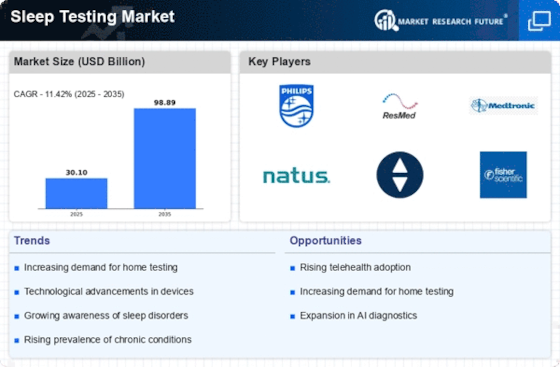
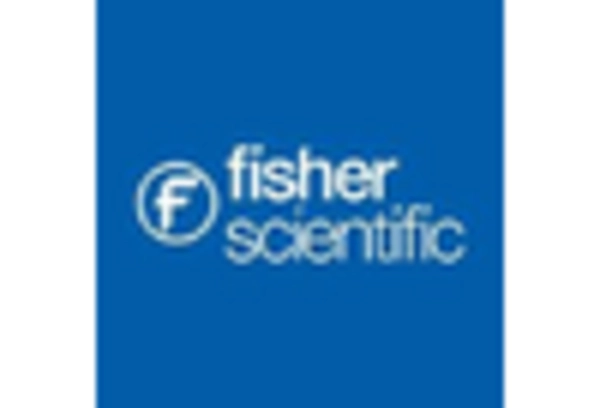

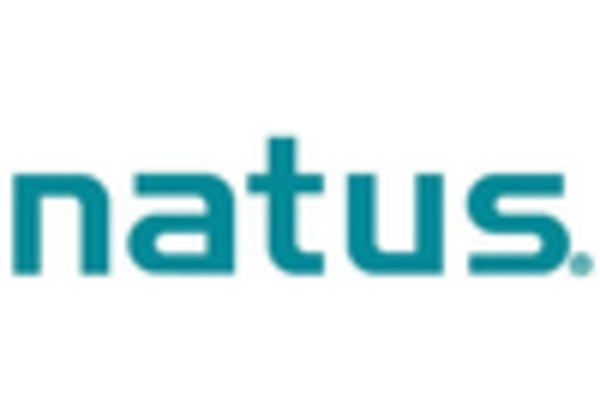

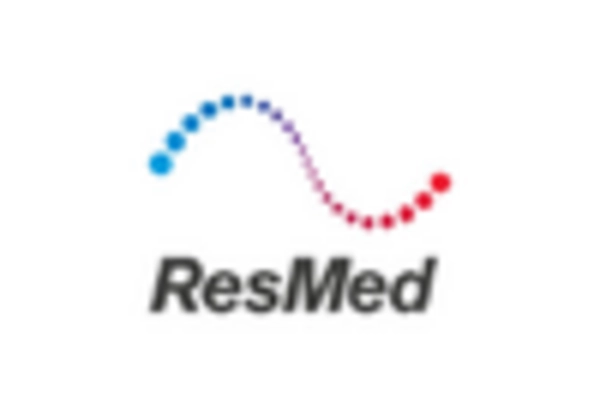
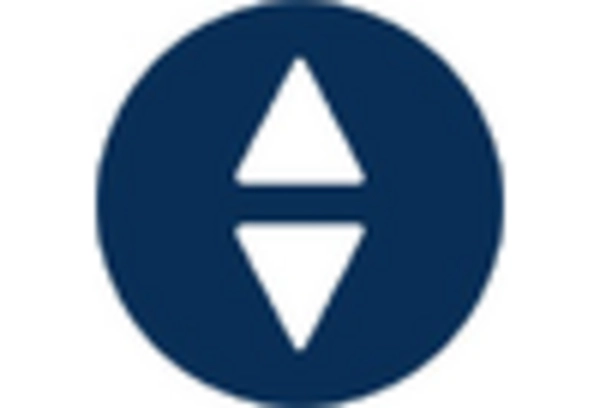









Leave a Comment